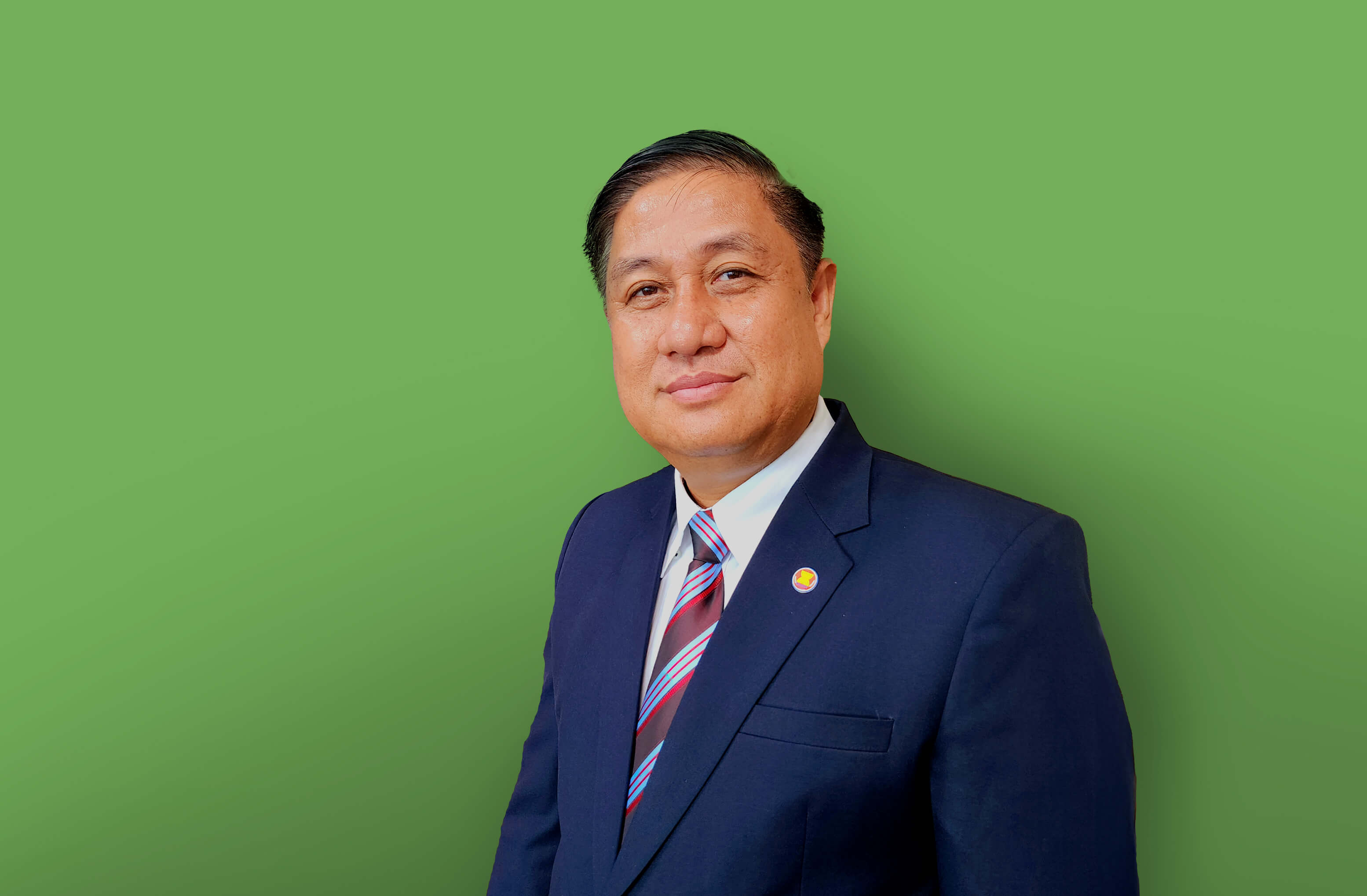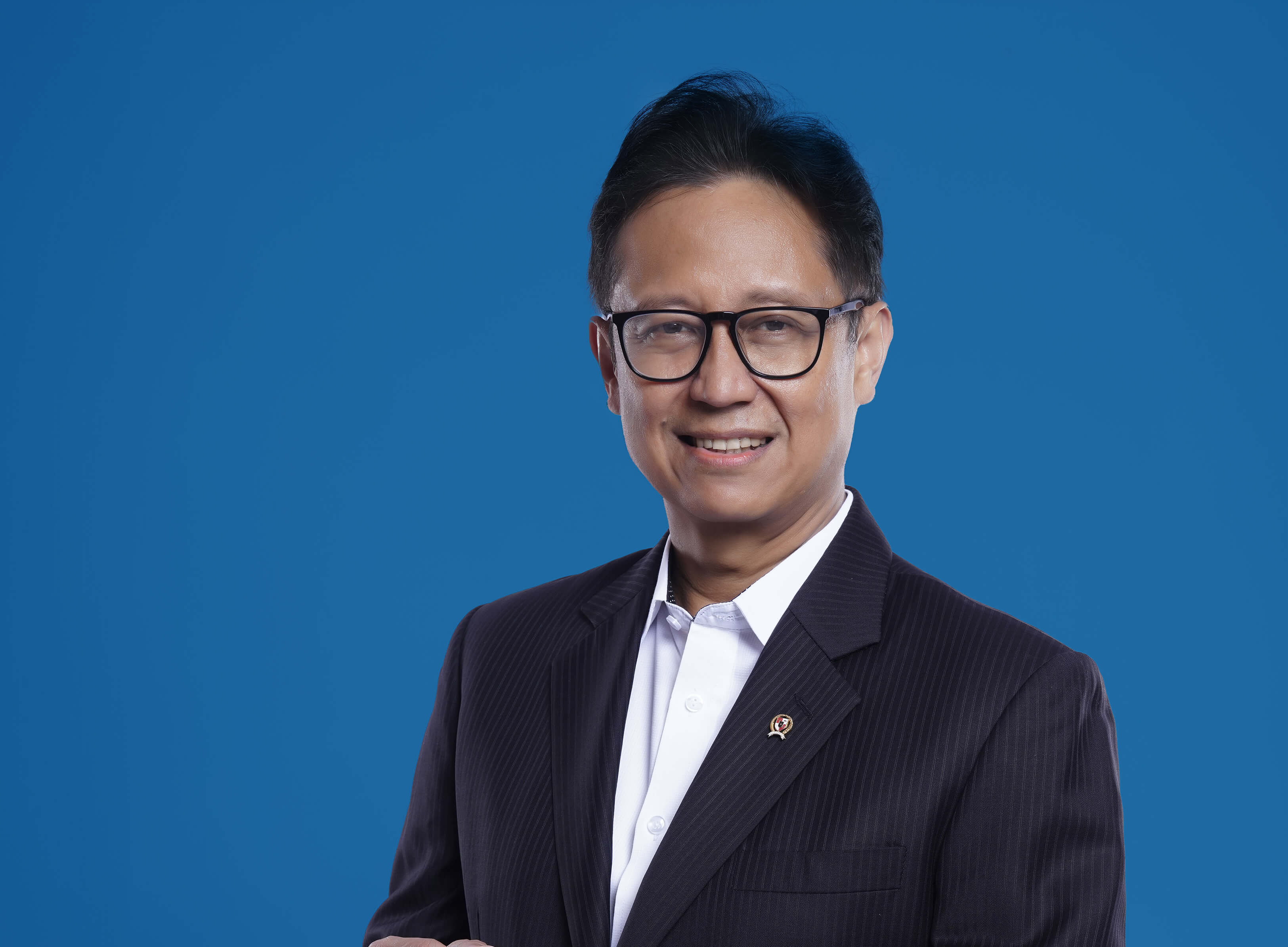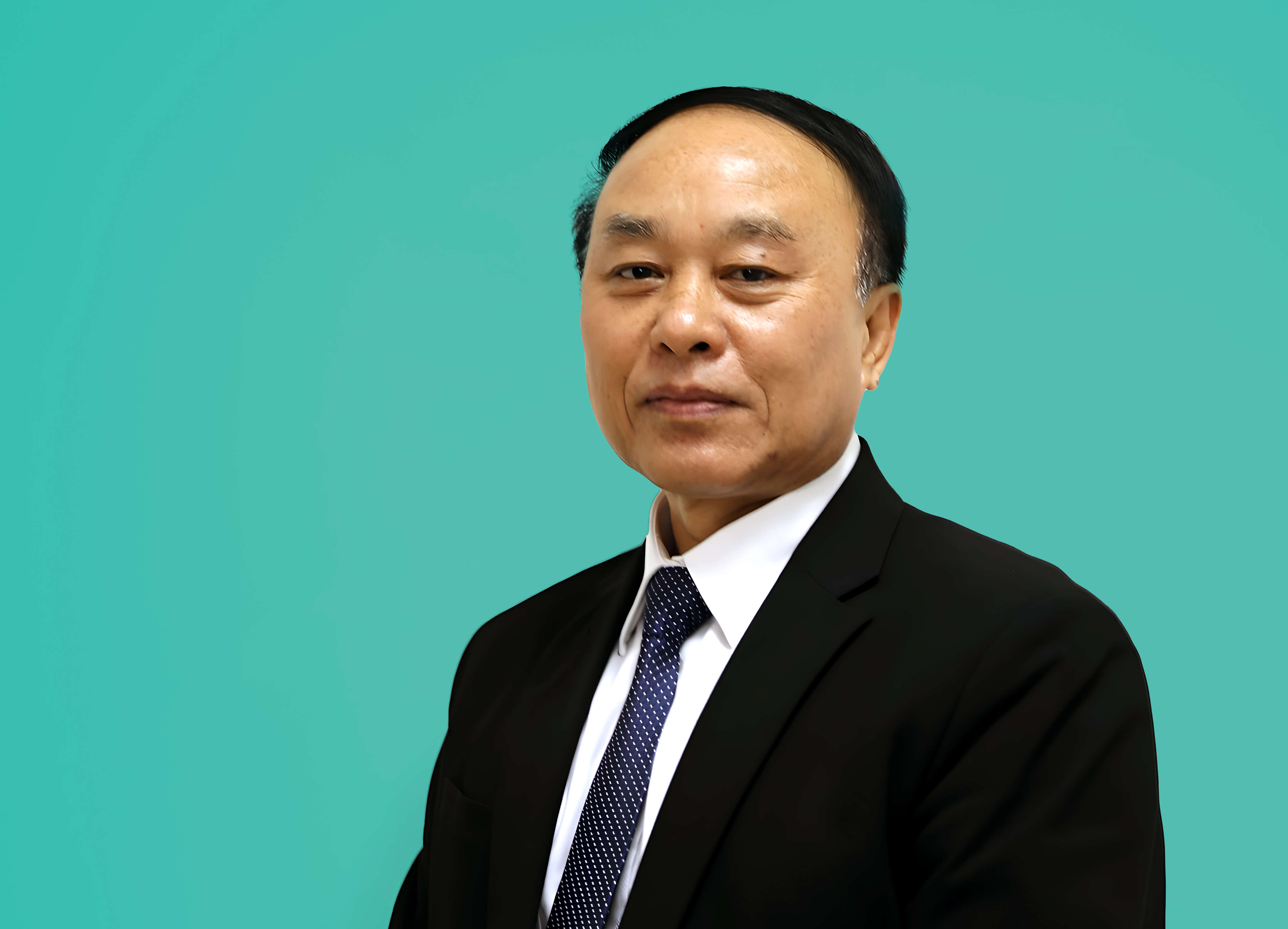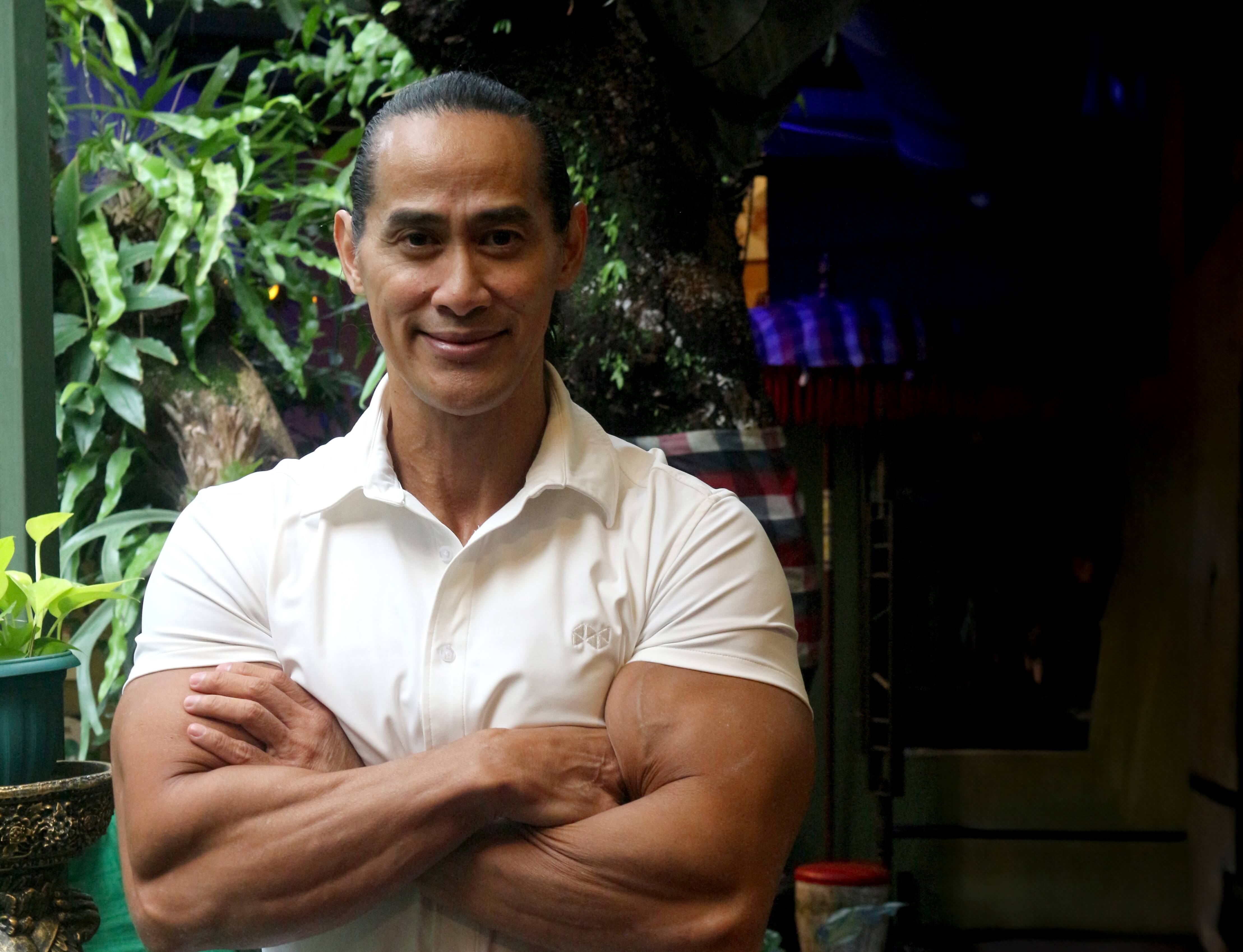


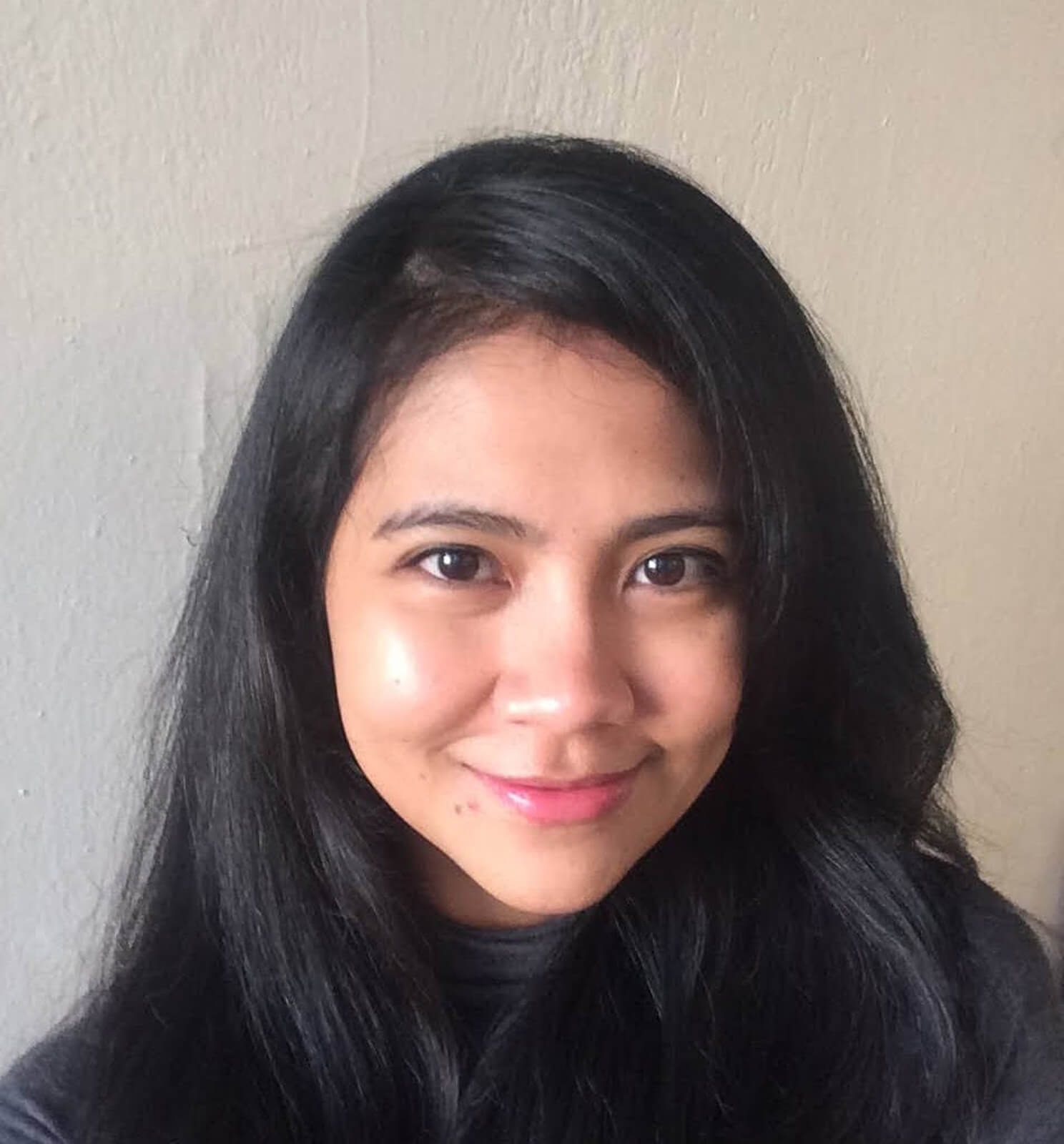
Fifty-four-year-old I Gusti Agung Kusuma Yudha Rai, better known as Ade Rai, is an Indonesian all-natural bodybuilder, fitness icon, and advocate for a healthy lifestyle.
“They used to call me He-Man in college,” says Ade Rai, referring to a newspaper photo of himself playing volleyball, captioned to liken him to the ‘80s character known for his superhuman strength.
Ade Rai welcomed The ASEAN to his Balinese-inspired gym in Bandung, West Java, where the health guru gladly showed his photo albums. “These are all my father’s,” he says, noting that his late father meticulously documented his journey in bodybuilding.
Flipping through the pages, photos and articles trace his rise through the local, national, regional, and international stages, cementing Ade Rai’s iconic status and making him a household name since the ’90s.
Ade Rai has been involved in sports for as long as he can remember. From badminton and arm wrestling to judo and bodybuilding, he was never far from an athletic environment.
“In high school, I stopped pursuing my dream of becoming a professional athlete and focused on my studies. However, I still worked out and played sports regularly as a hobby. Who would have thought that my hobby would lead me to where I am today?” says Ade Rai, who graduated from Universitas Indonesia with a bachelor’s degree in International Relations.
Growing up in a health-conscious environment and benefiting from a healthy lifestyle, Ade Rai has made it his mission to share his knowledge for a healthier nation.
“I might not have the authority to dictate government actions, but I really hope they can learn from my life journey. I was raised in a humble family; my father was a soldier, and my mother was a teacher. We didn’t have many privileges, but my parents steered me in the right direction, providing access to sports and a healthy lifestyle. While my peers in school began smoking and drinking alcohol or got involved in youth brawls, I never joined them. I focused on my field.
“As a result, at my current age of 54 years, the last time I was in a hospital was 54 years ago—and that was when my mother was giving birth to me. I hope my life can serve as a role model for behaviour. Imagine how much budget we could save for those in dire need if we could reduce the number of preventable diseases caused by unhealthy lifestyles,” says Ade Rai, who also serves as the brand ambassador for the Indonesian Social Security Agency on Health [Badan Penyelenggara Jaminan Sosial Kesehatan – BPJS].
Read more: Rethinking Health Advocacy with Pingann Oung
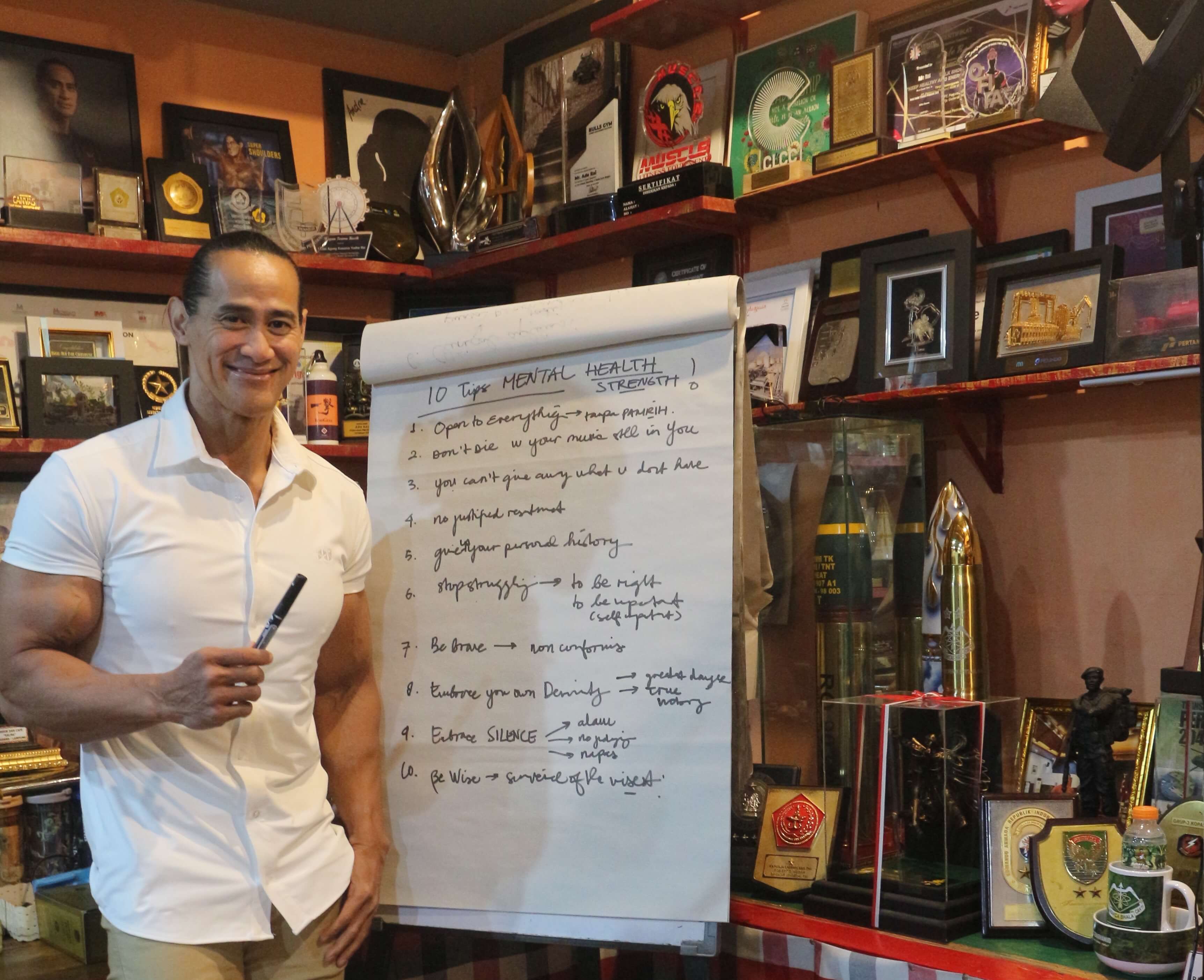
Dunia Ade Rai: A gem during the COVID-19 pandemic
Walking the talk, Ade Rai makes the most of the social media era to raise awareness about healthy living. Through his channel, Dunia Ade Rai [Ade Rai’s World], he consistently releases videos to his millions of loyal subscribers. With his dedicated flip chart, he elaborates on ways to improve overall wellness.
“Dunia Ade Rai began around four years ago, during the COVID-19 pandemic. At that time, I was frustrated by how our society was over-glorifying the disease and viewing others as threats. The media broadcasted nothing but disheartening content. Personally, I find it unfair that our society might suffer not because of the disease itself but because of our reactions to it, which harm us more than the disease,” says the gold medalist of the 1997 Southeast Asian Games.
Ade Rai recognises that raising awareness and education are crucial because they lay the foundation for understanding, which is vital for discipline and obedience.
“If we expect people to obey government directives, such as stay-at-home orders, we must first ensure they understand the reasons behind these orders. This is not an easy task. When people lack understanding, they are forced to comply, and forced compliance rarely yields positive results; instead, it breeds resistance.”
The owner of 28 cats also noticed how many people gained weight and saw their overall health decline during COVID-19 infection season.
“Logically, we should be taking better care of ourselves during this time to fight the virus, but the opposite happens as people become sedentary, indulging in unhealthy behaviours rather than exercising.”
These observations fuel his intense passion for educating people about a healthy lifestyle through his channel.
“I often wonder why we have a lower level of understanding about health-related issues. We pursue higher education to gain knowledge and secure great jobs, but we don’t maintain the same mindset towards our health. We need to learn more about healthy living, take control of our health, and make independent health decisions,” he encourages.
Tailoring healthy lifestyles for Southeast Asians
Thanks to a wide array of accessible information on healthy living, including Dunia Ade Rai, more people are now aware of the importance of a healthy lifestyle.
“After the pandemic, I noticed that people finally understand that going to the gym is a necessity. Men, women, the elderly, the young, and even juniors and high schoolers have started going to the gym. They already understand the benefits of these activities,” Ade Rai observed.
Ade Rai also likes to highlight the importance of challenging the mindset that healthy living is expensive. Instead of opting for unattainable foods, like Western-style “healthy meals,” Ade Rai believes culturally sensitive campaigns are wiser.
“When we promote healthy living, we should first connect closely with the people. For example, here in West Java, my campaign is simple: eat lalap (Sundanese salads) before your main course. This is a custom for the Sundanese people. In Sulawesi Island, where there’s an abundance of fish, we emphasise that eating fish is healthy!
“In our region, we are accustomed to whole foods, not highly processed foods. We have a plethora of spices that are beneficial for us. Let’s use these resources instead of trying to adopt ways of living that are far removed from our own.”
In addition to promoting local foods, Ade Rai advocates for healthy lifestyles that reflect a broader cultural context. For instance, in Indonesia, which has one of the world’s largest Muslim populations, he supports integrating traditional practices such as fasting during Ramadan into public health strategies.
“This too is a valuable campaign; fasting benefits everyone—not only does it bring you closer to God, but it can also improve your immune system,” he wraps up.
The views and opinions shared in these conversations are solely those of the interviewees, and do not reflect the official policy or position of ASEAN.




